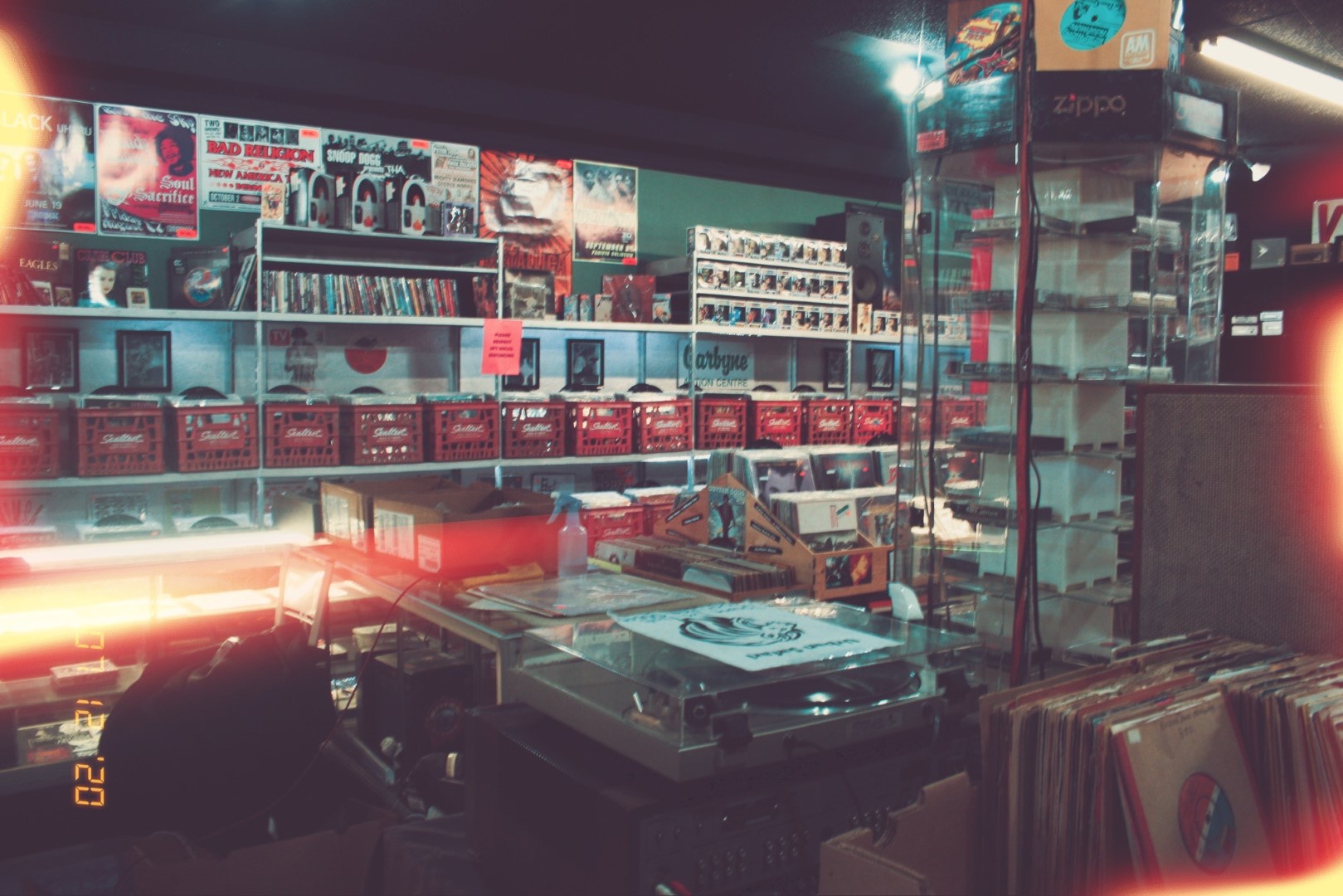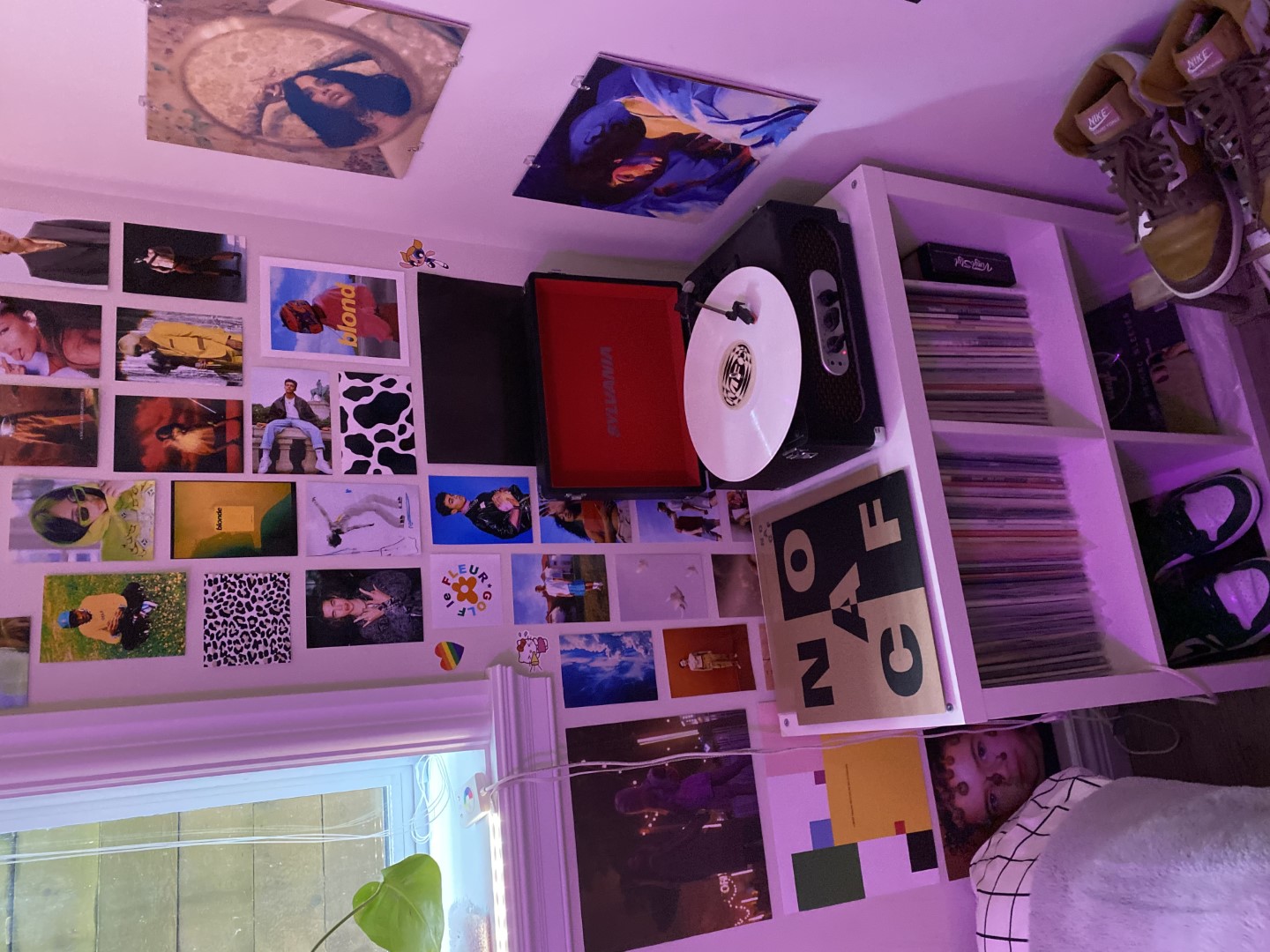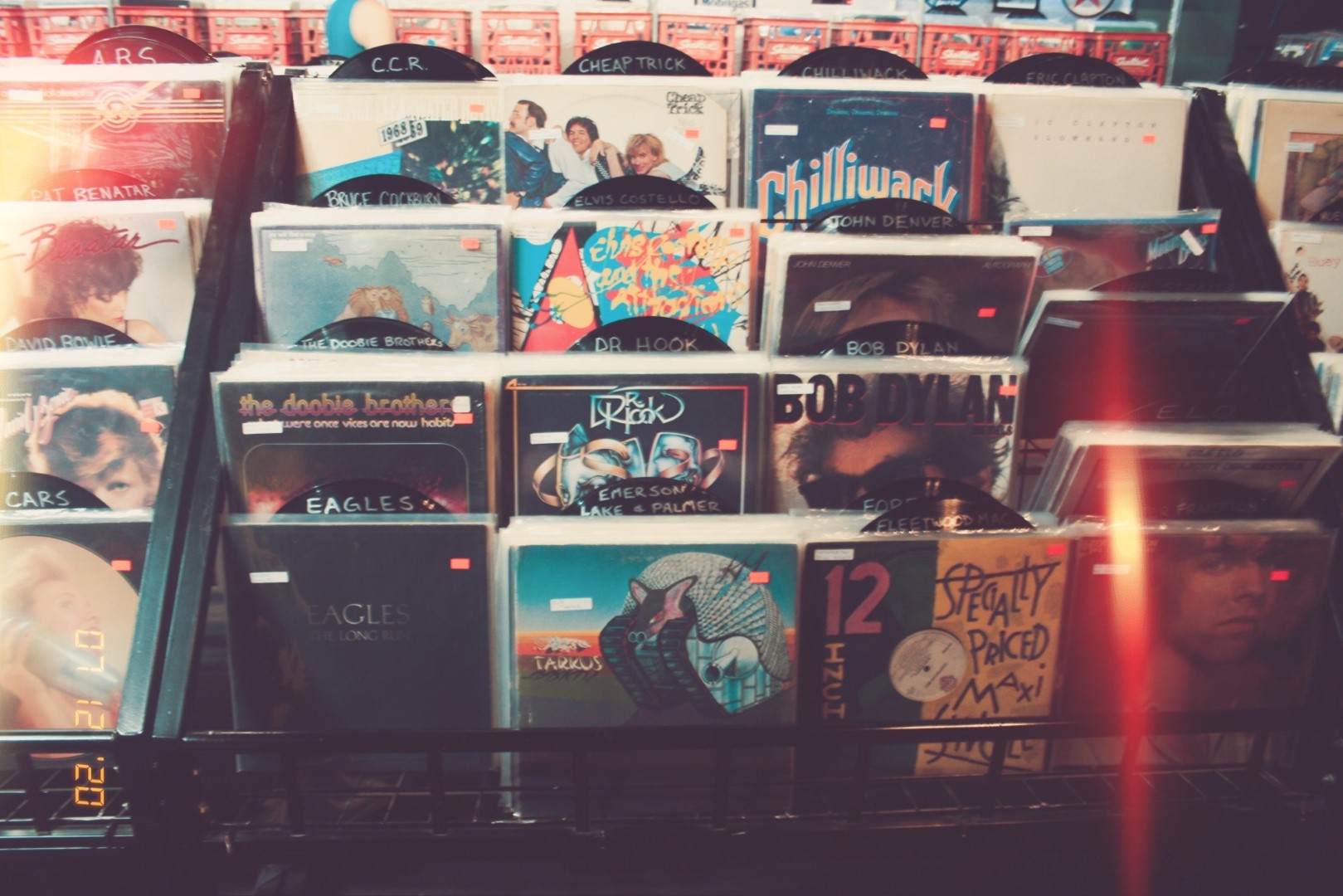
How Millennials and Gen Z helped popularize vinyl records in 2021
By Alexis Zygan, Staff Writer
“Vinyl slows everything down; you have to be present when you listen. You don’t just toss it on like Spotify and let it wander to a band you don’t know or care about.”
Collecting vinyl records has become a popular hobby among Millennials and Gen Z, causing record sales to skyrocket by 1000 percent in 2018 compared to previous decades. For generations of youth financing a home is a pipe dream—unlikely to be realized unless they grew up in an upper-class household. Record collecting is how they invest in their financial future and support their favourite musicians, especially after Spotify announced that they only pay artists an average of $0.007 per stream. With tours halted until COVID-19 regulations lift, buying LPs and EPs is a guaranteed way to endorse our favourite artists.
Unlike the compact CD and MP3, the sound of vinyl records is of higher quality, according to expert Adam Gonsalves who operates Portland’s Telegraph Mastering. Gonsalves explains to Oregon Live that vinyl records are “fully analog and fully lossless,” which preserves sound data. Though, to experience the superiority, listeners need a proper setup with a stereo and player that is not a Crosley as they will damage your record collection. I use the RT81 Elite High Fidelity Vinyl Turntable.

Vinyl records are visually appealing, come in various funky colours and designs, and some are even translucent. The construction of vinyl records is slick and thin for easy storing in a wooden crate or bookshelf. The platform Discogs allows users to display their collection online and calculate its value. Limited edition collector items have a higher resale value; the most expensive vinyl record Choose Your Weapon resold for $41,095.
Clothing retailer Urban Outfitters jumped on the popularity of vinyl records by dedicating a portion of their store to selling records from pop sensations and rock ‘n’ roll legends. The Chief Administrative Officer of Urban Outfitters, Calvin Hollinger, announced in 2014 that they have beat out independent record stores for selling the most vinyl records. Music magazine Billboard retorted with evidence that Amazon has 4.2 percent more of the market share than Urban Outfitters.
The Other Press spoke with Cam Delisle, a twenty-year-old record enthusiast who has been collecting records since his early teens. At first, the few records he owned did not feel like much. Delisle says, “but once you have a bunch, it is going to feel very rewarding. Try to support your local independent record stores rather than Urban Outfitters and Amazon.”
When you purchase a used record from an independent shop, there is a journey that the record went on before arriving in your hands. Maybe it was well-beloved by a local musician or played at someone’s wedding in 1988.

Once at home, you take the vinyl record out of the slip and carefully place it onto the turntable. Then, lastly, you unlatch and drop the needle. What follows is a blissful experience of harmonious magic for your ears. Close your eyes and let the music take you on a trip.
Madeline Elise Fraser started working at record stores four years ago. The Other Press visited Fraser at Redrum in New Westminster which is where she currently works. She says, “From [my first job at Underground Music in Kelowna] I was hooked, I never really want to do anything else.” Her favourite part about collecting records is, well, everything. Fraser says that “vinyl slows everything down; you have to be present when you listen. You don’t just toss it on like Spotify and let it wander to a band you don’t know or care about. If you listen to a record enough times, you start to tell what the next song is supposed to be about. It’s awesome.”
In 2021, the amount of independent record stores in Vancouver and surrounding areas is expanding. Redrum alone has opened up more than two new record stores in 2020 in the suburbs where jaded youth desperately seek a space to listen to music and jam out for harmless escapism. Fraser encourages folks to “support the scene. Now is a harder time than ever for everyone in it.” Every time someone purchases from an independent shop instead of Urban Outfitters or Amazon, the money supports the local culture.



